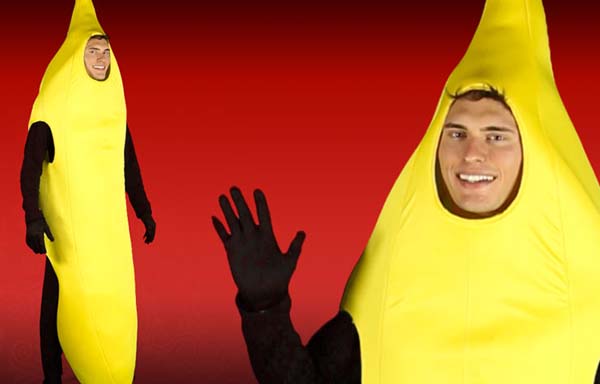Top 6 Halloween Lawsuits of All Time

Happy Halloween from Rocket Matter! We hope you have a fun day.
Working with thousands of lawyers around the world, we know that plenty of lawsuits are very strange. But the ones related to Halloween? Of course, those are particularly silly and bizarre.
Here’s a look at some of the weirdest ones we’ve come across:
Costumes Gone Bananas: Rasta Imposta v. Kangaroo Manufacturing
In 2017, Rasta Imposta, a costume manufacturing company, sued another company—Kangaroo Manufacturing—for copyright infringement of their (get this!) banana costumes. According to The New York Times, the judge on the case “could not help himself. He used terms like ‘bananafest’ and ‘bananapalooza’ at a hearing, after wondering ‘whether the founding fathers had banana costumes in mind’ when they drafted the Constitution.”
His ruling was a split decision. (You can’t make this stuff up!)
A Prank Gone Wrong: Kentucky v. Watkins
Joe Watkins got a little too much in the Halloween spirit. He created a fake crime scene at Chicken Ranch, a restaurant in Paris, Kentucky where he was the manager. He made a puddle of fake blood on the floor and then lied in it, waiting to scare an unsuspecting employee. When that employee saw Joe lying in the blood, she ran out of the restaurant screaming and called 911. Joe tried calling her, but it was too late: The police arrived, and Joe got arrested for creating a prank that led to a false police report.
Another Prank Gone Wrong: Smith v. Taunton High School
According to a news report, in 2010, a Taunton High teacher asked a 15-year-old student to answer the door. When the teen did, someone was standing at the door, wearing a mask and wielding what appeared to be a chainsaw. He suffered a fractured bone and serious knee injuries after tripping over a chair while trying to run away. The student’s parents filed personal injury lawsuit against the high school for over $100,000 in damages.
Little Bo Peep and her Sheep: Ferlito v. Johnson & Johnson Products Inc.
In 1984, Frank Ferlito attended a party dressed as a sheep. His wife, Susan, dressed as Little Bo Peep. Frank’s costume consisted of long underwear, glue, and lots and lots of cotton. With the exception of his hands and face, his whole body, in fact, was covered in cotton. During the party, Frank tried to light a cigarette. He accidentally dropped it and his whole costume became engulfed in flames. He was badly burnt.
The Ferlitos then sued Johnson & Johnson (the manufacturer of the cotton balls) for failure to warn. The verdict: A jury said the Ferlitos were 50 percent at fault awarded them $625,000. On appeal, the verdict was set aside.
The Haunted Corn Maze: Durmon v. Billings
In 2002, Gail Durmon was walking through a scary Louisiana corn maze when she was met by a worker dressed as Jason from the movie Friday the 13th. The guy was holding a chainsaw above his head! Durmon understandably tried to run away, but instead she fell and broke her leg after slipping on the muddy ground. Durmon sued the maze owner for negligence, but the court determined that she had paid for the scary experience and knew what she was getting herself into.
Tombstone Messages Too Realistic: Purtell v. Mason
Jeffrey and Vicki Purtell parked an RV in their driveway, but their neighbors weren’t happy. The neighbors said it was an eyesore, and pushed an ordinance through the local government, prohibiting the storage of RVs on residential property. So, to retaliate, the Purtells put up six tombstones in their yard as part of their Halloween decorations. The epitheth spoke of their neighbors and their “fake” deaths.
For instance, one tombstone said: “Dyean was Known for Lying So She was fried. Now underneath these daises is where she goes crazy!!”
Neighbors complained to police regarding the tombstones. Bruce Mason, a responding officer, came and removed them. Purtell then filed a suit against Mason, claiming the officer had infringed on his First Amendment rights.
In the end, the court ruled the grave markers were threatening and could “incite an immediate breach of the peace.”
Share post:








